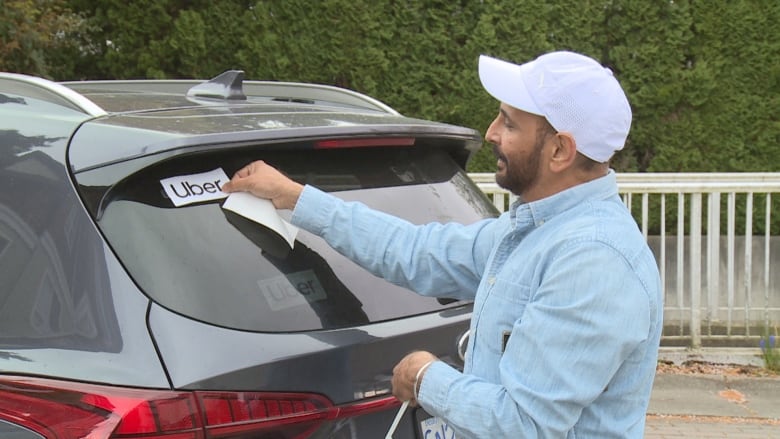New employment standards for people who work through gig-based apps like Uber, DoorDash, Skip the Dishes and Lyft take effect in British Columbia on September 3.
While the regulations include a $20.88 minimum wage, workers’ compensation coverage and wage transparency measures, some workers are still skeptical.
“It’s good that the legislation is coming, but this is not the legislation we asked for,” said Kuljeet Singh, an Uber driver in the Metro Vancouver area.
According to the province, the new regulations will set employment standards for BC’s approximately 46,000 transportation and delivery workers.
Experts say the rules define app-based workers under existing BC labor laws and establish a new way for the province to hold apps accountable as employers. Critics say the rules won’t mean fair compensation for trucking and delivery workers.
Uber did not immediately respond to a request for comment.
Vehicle allowance, “time employed”
The new regulations set a minimum allowance of 35 to 45 cents per vehicle kilometer to help workers cover expenses.
Platform companies will be prohibited from withholding or making deductions from tips. They will also be required to register workers for workers’ compensation coverage with WorkSafeBC.
Before September, platforms could send workers on errands without disclosing the destination of the trip or how much they would earn from each trip. Under the new rules, apps will have to provide these details to workers before accepting an assignment.
Transport and delivery workers will earn minimum wage from the time they accept an assignment until it is completed. Under the new rules, it’s called “employee time” — workers aren’t paid while waiting for an assignment. .
The province did not immediately respond to a request for comment.
“A good start”
Véronique Sioufi, a researcher on racial equity and socioeconomics at the Canadian Center for Policy Alternatives, says her reaction to the new regulations is mixed.
She says the new rules define gig workers as employees, giving them some of the same rights as other BC workers
“The definitions are a good start and establish a base from which we can work in the future,” Sioufi said.
“It was a really important discovery.”
She adds that the rules open the door to worker protections for other online workers.
But even with the new regulations, Sioufi says gig workers don’t have access to all the benefits of the Labor Standards Act, such as holiday pay, benefits, pensions or employment insurance. She also said it’s still unclear whether the changes will actually mean more money in workers’ pockets.
“The big question will be whether these measures ensure that platform workers receive at least a pittance, which is the legal minimum wage,” she said.

The cost of waiting
Back on the road, Singh is hopeless.
On Tuesday, he spent two hours at Vancouver International Airport waiting to be assigned a passenger. He says he often spends hours waiting for the app to send him a ride request.
Sioufi says drivers often spend 40 to 60 percent of their time idle.
According to the province, that expectation is why the minimum wage for trucking and delivery workers is 20 per cent higher than BC’s minimum wage of $17.40 an hour.
But that doesn’t close the gap, says Singh. He says he often works more than 13 hours each day.
“Do you think it’s safe to do these things?” he said. “But we have to, because we’re not winning well.”
He calls for a cap on the number of drivers an app can hire in a city. He says reducing the supply of drivers will mean everyone gets more rides and spends less time waiting.
“I’m glad we’re at least getting, like, transparency…and [workers’ compensation] it’s a good thing,” he said. “But apart from this fight it’s the same. We are not doing enough. I cannot survive the engagement time.”
#Hope #skepticism #gig #worker #regulations #effect #CBC #News